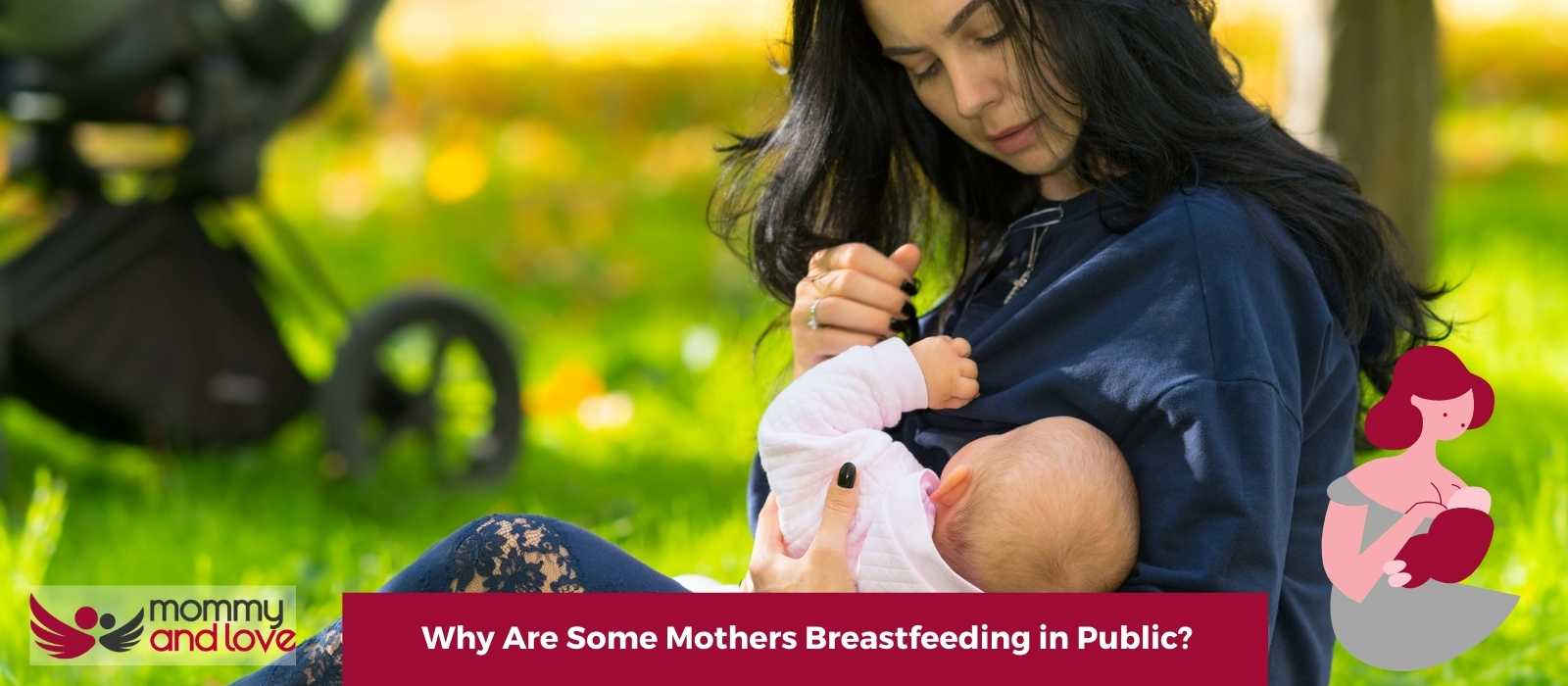In the United States, over 81% of women breastfeed their babies at birth. And, since newborns tend to breastfeed a lot, very often looking for breast milk every hour or two, learning to breastfeed in public becomes a necessary skill.
The World Health Organization along with most health professionals recommend nursing for at least six months postpartum. We know that breastfeeding carries huge benefits to maternal and child health, yet breastfeeding women continue to feel uncomfortable.
The Baby-friendly hospital initiative strives to support breastfeeding for the benefit to infant health and the well being of breastfeeding women.
Clearly, we need to do more to support our new moms, to ensure they feel comfortable breastfeeding whenever they need to not all babies nurse on a schedule! See how the law protects breastfeeding moms.
Do You Have to Cover-up While Breastfeeding in Public?
Infant feeding can be very unpredictable, particularly in the early days. As a result, breastfeeding moms often find themselves in shopping malls with a crying baby hungry for milk!
There is no requirement at all for breastfeeding mothers to cover up while feeding their baby. Many mothers like to use a cover while breastfeeding, and thankfully there are many available, in all kinds of funky prints so that mums can breastfeed without worry. Another great tip is to use the two-shirt method for breastfeeding.
Why do Breastfeeding Mothers Feed Their Babies in Public?

Breastfed babies don’t care whether they are in a public or private location, they generally just want their breast milk, and often, they want it right now! In the early days, breastfeeding duration and frequency can be very high, and unpredictable too.
Women who are breastfeeding exclusively often have to master this skill, or they simply wouldn’t be able to leave the house! Maternal attitudes to public breastfeeding are often mixed, but most mothers breastfeeding in public are simply doing what they have to do to meet their baby’s nutritional needs. The best way to encourage breastfeeding is to support and facilitate public nursing.
Why Can’t a Breastfeeding Mother Express Milk Instead?
It’s certainly an option to express breastmilk, the only problem is the time it takes for the nursing mother to do so. Expressing milk can be time-consuming and often doesn’t produce as much milk as what the baby could remove from the mother’s breast while breastfeeding. Also, exclusive breastfeeding doesn’t leave a lot of extra time to express breast milk too!
It’s important to remember that the nursing mothers you see in public breastfeeding are simply feeding their babies! Breastfeeding is a choice, just as bottle feeding is, and every breastfeeding mom should be supported to breastfeed exclusively if that’s what she chooses to do.
Do Breastfeeding Mothers Breastfeed in Public for the Attention?
Of course not! With the exception perhaps of a nurse in, which is an organised event whereby breastfeeding moms nurse in public in order to promote breastfeeding in public spaces.
The international breastfeeding journal highlights the challenges faced by nursing moms around the world, and this is just one of the harsh perceptions of women who breastfeed their babies in a public or private place.
New mothers are simply doing everything they can to meet the needs of their babies.
What Are My Rights When it Comes to Breastfeeding in the WorkPlace?
If your baby is entitled to be there, breastfeeding shouldn’t be an issue either. Many nursing moms struggle with breastfeeding when they return to work, but you should not face pressure from your company to introduce infant formula or to stop breastfeeding. For more on returning to work, check out this handy guide.
According to the Fair Labor Standards Act, Federal law does protect the right of a breast feeding woman to reasonable break time to express breast milk for the first year of their baby’s life.
Do check out the federal government websites for more information on your rights in the workplace. Human services at your workplace should also be able to advise.
What to Do if Other People Are Uncomfortable About Your Breastfeeding in Public
Beneficial as breastfeeding may be, public breastfeeding continues to make other people uncomfortable, with some feeling it equates to indecent exposure! The reality though is that you should be able to feed your baby discreetly, meaning that any passers-by should see little more than the baby’s face.
If you have friends or family members who feel this way, the best thing you can do is remind them of the health benefits of human milk. Feeding your baby is completely natural and is nothing to be embarrassed about.
If you would feel more comfortable. you can also find a private location to feed your baby. Another option would be to feed your baby expressed milk. Remember however that you are not obligated to do this and that infant feeding choices are your own!
Why is Breastfeeding Frowned Upon in Public?
Cultural context is important when it comes to perceptions of breastfeeding in public. Some cultures have a much more supportive attitude towards breastfeeding, which in turn has a hugely positive affect on breastfeeding initiation rates and maternal and child health.
Where this is the case, breastfeeding in public is seen as commonplace and entirely normal, which leaves women feeling much more comfortable breastfeeding.
Unfortunately, the western world is much less accepting of seeing women breastfeeding. Women’s bodies continue to be sexualised, with breasts being seen primarily as sexual objects.
Bottle feeding is accepted as the social norm, breastfeeding knowledge is often poor and nursing mothers are expected to find a private space to facilitate breastfeeding discreetly.
Breastfeeding initiation rates are often high, dropping to below 25% by six weeks postpartum in many cultures. Breastfeeding rates are particularly low in the low socioeconomic community.
What Protections Does a Breastfeeding Woman Have?

Breastfeeding moms are legally protected to feed their baby in any place their baby is permitted to be, this includes shopping malls and other public spaces.
Check out the federal government website to view state legislatures and carry information relating to your legal protections with you.
Tips For Nursing Mothers
- Know your rights: Breastfeeding in public is covered by legal protections, so nobody has the right to challenge you, provided that you’re in a space where your baby has the right to be. Not all babies nurse on schedule, making breastfeeding in public a necessity.
- You are not obligated to express milk. Check our federal government site for more information. Some people may be offended by the sight of a woman breastfeeding, but remember that this isn’t your problem!
- Practice at home: nursing in public can seem daunting, so try it at home first! Maternal attitudes towards feeding your baby in public often relax after you do it in front of a mirror at home- you’ll probably be surprised at just how little skin shows when you’ve got the hang of it.
- Bring a friend, and choose a familiar place- Many moms like to settle on a cafe or store where they know the staff are particularly accommodating to nursing moms. It can also help to bring a friend along as a little extra support
The Bottom Line
How you feed your baby is your own business! Remember that you have a legally protected right to feed your baby, even out in public.
The idea of nursing your baby in public may seem daunting, but once you’ve managed to get over that fear, you’ll find that it’s much easier to get out and about knowing that you can feed your baby on the go whenever they need to.

This article was written by Sandra Baker – full time writer and the mother of four amazing kids (including twins!)
She’s also a breastfeeding counselor and has spent years helping new parents learn how to care for their children. When she’s not writing or caring for her children, Sandra likes to spend time reading and taking walks with her husband.




